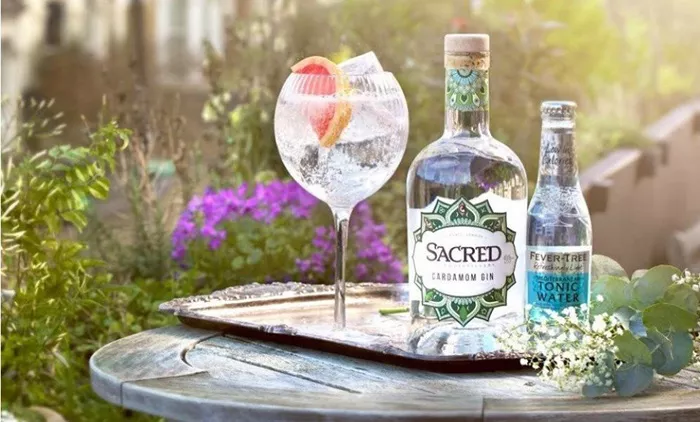Definition of Spirits
History of Spirits
1. Ancient Origins
The ancient Egyptians and Greeks are believed to have been familiar with distillation.
However, it was the Arabs who made significant advancements in distillation technology.
2. Middle Ages and Renaissance
During the Middle Ages, spirits were produced in monasteries and apothecaries.
The Renaissance saw the spread of spirits across Europe, with different regions developing their own unique styles.
3. Modern Era
In the modern era, spirits production has become a global industry.
Advances in technology have led to more efficient production methods and a wider variety of spirits.
Production Methods of Spirits
1. Fermentation
Fermentation is the process by which yeast converts sugars into alcohol.
Different types of spirits use different sources of sugar, such as grains, fruits, or potatoes.
2. Distillation
Distillation is the key step in spirit production.
It involves heating the fermented liquid to vaporize the alcohol, which is then condensed and collected.
3. Aging
Some spirits are aged in oak barrels or other containers to develop their flavors and smoothness.
The length of aging can vary depending on the type of spirit.
Types of Spirits
1. Whiskey
Whiskey is made from fermented grains, such as barley, corn, or rye.
It is aged in oak barrels and can be classified into different types, such as Scotch, Irish, Bourbon, and Rye whiskey.
2. Vodka
Vodka is a neutral spirit that can be made from a variety of ingredients, including grains, potatoes, and fruits.
It is typically distilled multiple times to achieve a high level of purity.
3. Gin
Gin is flavored with juniper berries and other botanicals.
It can be made by redistilling neutral spirit with botanicals or by infusing botanicals into vodka.
4. Rum
Rum is made from sugarcane or molasses.
It can be light or dark, depending on the aging process and the addition of caramel or other colorants.
5. Tequila
Tequila is made from the blue agave plant.
It is produced in Mexico and can be classified into different types, such as blanco, reposado, and añejo.
6. Brandy
Brandy is made from distilled wine.
It can be aged in oak barrels to develop its flavors and smoothness.
7. Other Spirits
There are many other types of spirits, such as absinthe, aquavit, and mescal.
Each has its own unique characteristics and flavors.
Flavor Profiles of Spirits
1. Whiskey Flavors
Whiskey can have flavors of caramel, vanilla, oak, and smoke.
Different types of whiskey have their own distinct flavor profiles.
2. Vodka Flavors
Vodka is typically described as having a clean, neutral flavor.
However, some vodkas may have subtle flavors from the ingredients used in their production.
3. Gin Flavors
Gin has a distinct juniper flavor, along with other botanicals such as citrus, coriander, and angelica.
4. Rum Flavors
Rum can have flavors of sugarcane, molasses, vanilla, and spice.
The aging process can add additional flavors such as oak and caramel.
5. Tequila Flavors
Tequila has flavors of agave, citrus, and pepper.
The aging process can add flavors of oak, vanilla, and caramel.
6. Brandy Flavors
Brandy can have flavors of fruit, oak, and vanilla.
The aging process can enhance these flavors and add complexity.
Spirits and Cocktails
1. Popular Cocktails
Some popular cocktails that use spirits include the Martini (gin or vodka), Manhattan (whiskey), Mojito (rum), and Margarita (tequila).
2. Mixology
Mixology is the art of creating cocktails, and spirits play a central role in this art form.
A skilled mixologist can combine different spirits and ingredients to create unique and delicious cocktails.
Spirits and Culture
1. Social and Cultural Events
Spirits are often consumed at social and cultural events, such as weddings, parties, and festivals.
They can be a symbol of celebration and conviviality.
2. Regional Specialties
Different regions have their own unique spirits that are associated with their local culture and traditions.
For example, Scotch whiskey is closely associated with Scotland, and tequila with Mexico.
3. Spirits and Literature
Spirits have been mentioned in literature throughout history, adding to their cultural significance.
Writers such as Ernest Hemingway and F. Scott Fitzgerald were known for their love of spirits.
See Also: Alcohol vs. Spirit: Are They The Same?
Spirits and Health
1. Cardiovascular Health
Some studies suggest that moderate consumption of spirits, such as red wine or whiskey, may have a positive effect on cardiovascular health.
However, more research is needed to confirm these findings.
2. Antioxidants
Spirits such as red wine and brandy contain antioxidants that may have health benefits.
These antioxidants can help to protect the body against free radicals and reduce the risk of certain diseases.
3. Stress Relief
Moderate consumption of spirits may have a relaxing effect and help to reduce stress.
However, it is important to note that excessive consumption can have the opposite effect.
Conclusion
You might be interested


